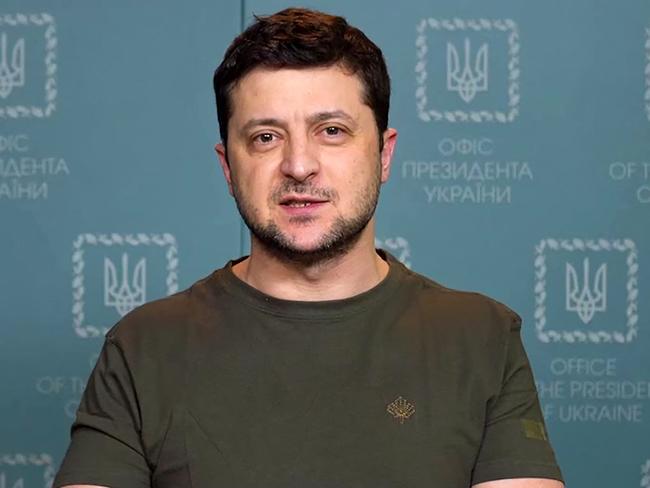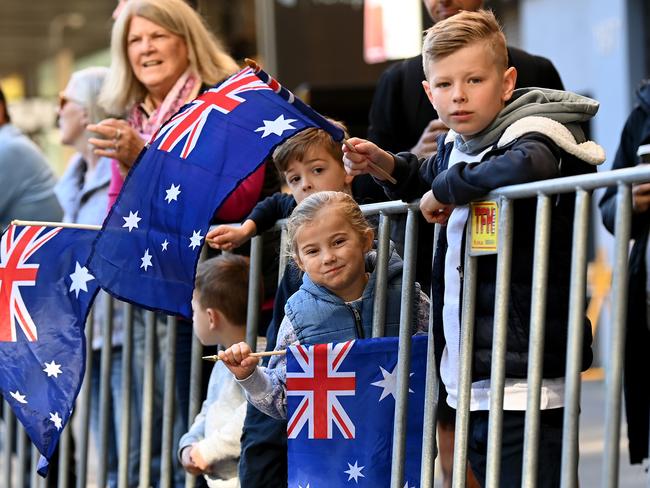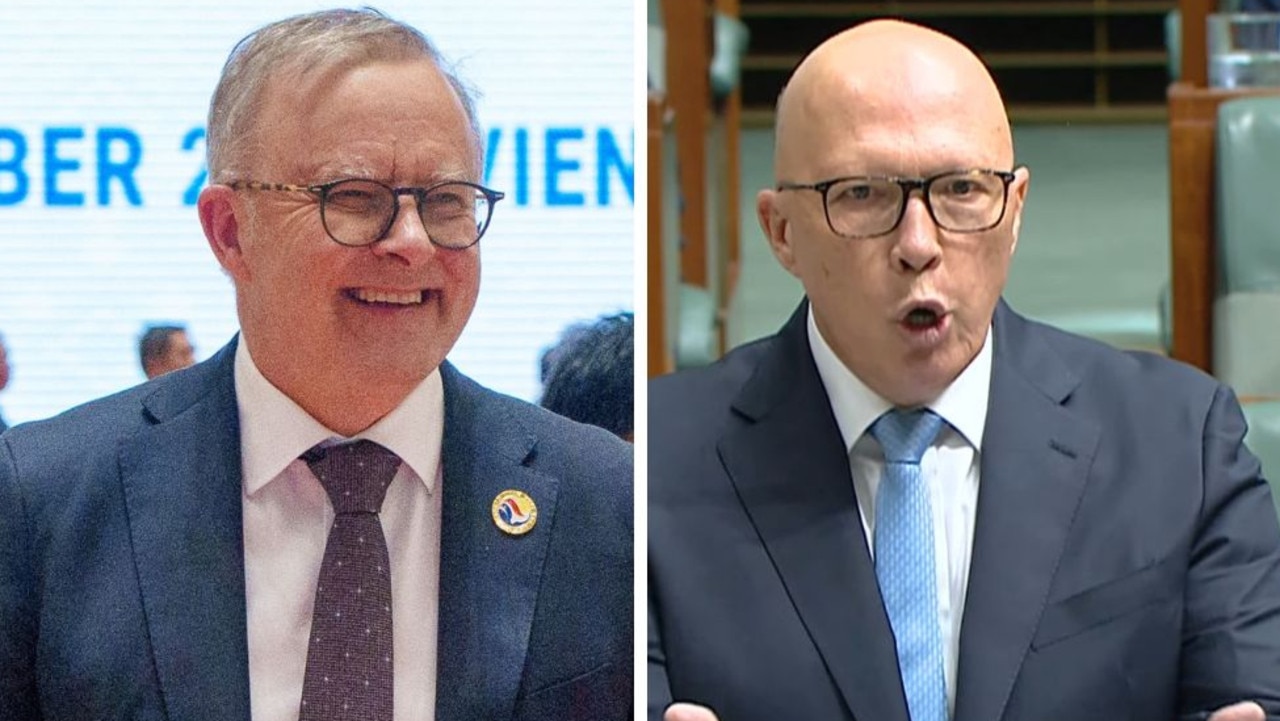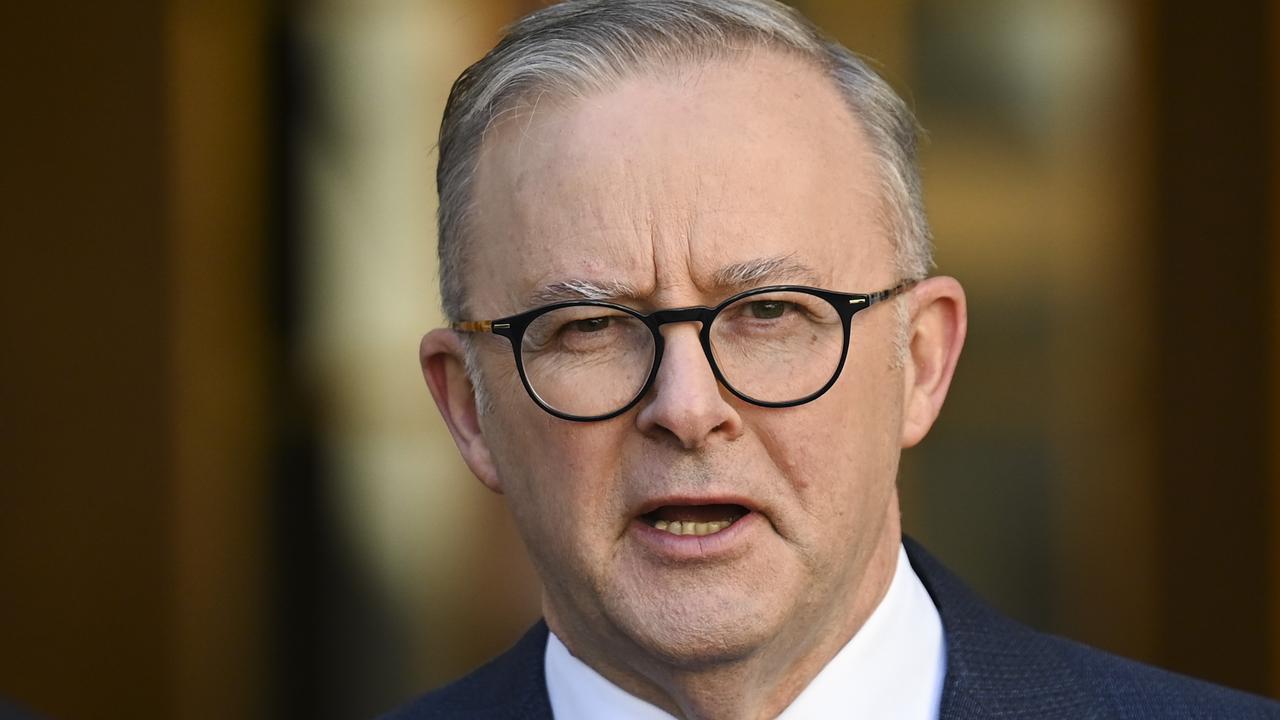Patrick Carlyon: Proud Ukrainians show the best of nationalism
Ukraine’s response to war speaks of the best in nationalism, of shared purpose and beliefs. But, here in Australia, nationalism has come to be a dirty word.
Patrick Carlyon
Don't miss out on the headlines from Patrick Carlyon. Followed categories will be added to My News.
Some people have asked the question in recent days: what would happen if Australia was invaded?
Customs would be the first line of defence, of course. The invaders would be asked, firmly, to park their tanks in the long-term carpark. There would be forms to fill out.
Have the invaders had Covid in the past 28 days? Where have they travelled/rampaged in the past 14 days?
The invaders would have to attest to the health of their household/barracks contacts, and provide three separate copies of each of their vaccination certificates, as explained on page 27 of the Arrivals to Australia Manual for Newly-Arrived Arrivals to Australia.
As a strategy, defence by paperwork might just trump more orthodox responses.
Many of the invaders, failing to have this or that piece of paper, would be ushered on to buses and taken to two-star hotels, where they could watch Netflix until the existential risk of their indeterminate health status has passed.
Any imagined Australian response to a sovereign threat, like many western countries, stands to be parodied in comparison with the Ukrainian spirit.
The resolution of that country’s president, Volodymyr Zelensky, evokes descriptions that elude most western leaders: courage, conviction, sacrifice.
He has taught leaders everywhere what it means to lead.

He embodies the strain of the underground bunkers, a country’s fears for its way of life, and the knowledge the fight may go on after the food and water supplies dwindle.
Ukraine’s response speaks of the best in nationalism, of shared purpose and beliefs, of a unity stripped bare of western overlays, such as political correctness and fear of offence.
In contrast, in Australia, expressions of nationalism are treated with suspicion or disdain.
Here, nationalism has long come to be a dirty word, to be related to racism, in winding debates about perceived grievances and an unwillingness to sate them.
Australia has long been afforded this luxury of self-indulgent abstractions.
Here, nationalism is scorned as the older sibling of jingoism. It is derided for excluding those who don’t join in. Nationalism is written off as a veneer for the disturbing motives of the far right.
Australian nationalism is said to be the cause of symbols thought to be misplaced or offensive.
It is the identified fault for a clumsy national anthem lyric or the untold menace of a barbecue on the national day. To be called nationalistic is to be put down.
Nationalism is a call to condescension, about a flag which nods to colonialism, or held up as evidence for lectures about how Anzac Day is misunderstood by simple folk who celebrate myths and legends.
It is invoked for slappings of guilt and shame, for tut-tutting about statues or place names.
Australian nationalism has been assaulted from within. It is not about the search for cohesion, but instead a reason to find fault, from the “appropriate” teaching of history to the latest woke clamour about political sound bites.
This hand-wringing now stands as a potential weakness.

Overseas, Australia is thought to be a place which surrendered its freedoms to leaders too ready to remove them during Covid. But freedoms, and our commitment to preserving them, now need to be articulated.
The idea of a future assault on our freedom seems less fanciful than it did. The world is now held to ransom by threats both primitive and brutal.
The rise of nationalism, notably in China and Russia, speaks of imperialism and scores to be settled. Nations have been compelled to take sides, to figure out what values they treasure most.
There has been a united western response to Russian barbarities, and even the pacifist illusions of Europe have quickly dissolved.
The challenge of Ukraine may remain for some time. But its onset should serve as a reminder of other possible challenges which would demand a unity of conviction which Australia has discarded for so long.
Former prime minister Tony Abbott expressed this concern on Sky News last month: “We’ve spent so much of the past couple of decades telling ourselves that we are a fundamentally unjust and fundamentally illegitimate county and culture, and plainly it’s pretty hard to stand up for yourself if you don’t really believe in yourself.”
Isn’t it time for Australia to figure out who we are and what we do (and do not) cherish above all else?
Should we graduate to bigger questions, beyond the echo chambers of self-loathing, where the shrillest margins of outrage bow to more practical considerations?
Australia will seem dreadfully soft and exposed if we cannot.
Patrick Carlyon is a Herald Sun columnist



